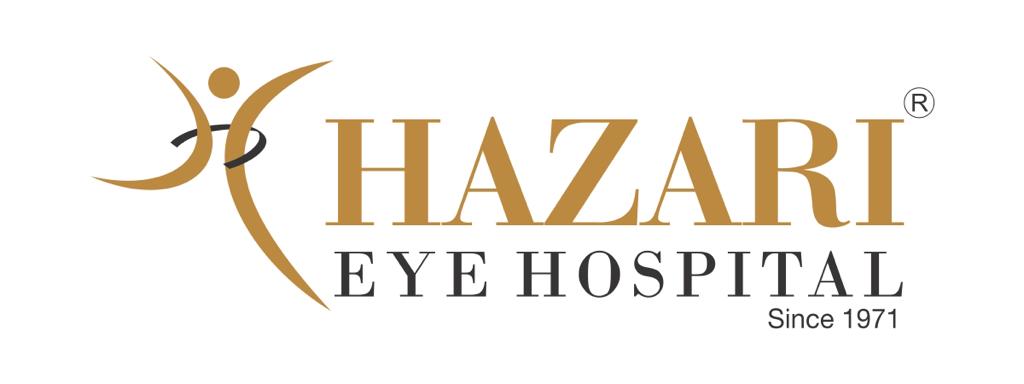World Glaucoma Week: Part Three of Article series on Glaucoma.
Dr. Ajit Hazari. DNB. Glaucoma and Phaco Specialist.
Today’s article covers some of the common fears and concerns of the person suffering from glaucoma as also his care giver or supporter at home. I have seen the fear on the face of someone who has been diagnosed with glaucoma. If through this article I could help allay your fear, bring back your self confidence and put a smile on your face, I will be eternally grateful to God!

Q. Doctor, will I go blind?
Research shows that if you are regular with your medicines and regular in your follow-up visits to the doctor, the chances of your going blind are very very less! Yes I agree there is no cure for glaucoma. But if we work as a team, we can make it to the end!
Q. Doctor, will my children also get glaucoma?
There is a chance of them developing glaucoma. But look at the brighter side of it. Because you know you have glaucoma, you are more sensitive and careful about it and you will make sure they get their eyes checked regularly. If they take due care, then they are unlikely to lose any vision due to glaucoma.
Q. Doctor, is it possible to get glaucoma even if I don’t have cataract?
Sometimes, if cataract is neglected, then after a long time, it can lead to glaucoma if it ruptures or it becomes too big. But more often than not, glaucoma is not associated with cataract. So glaucoma can occur even if there is no cataract.
Q. Doctor, can anyone develop glaucoma?
It is more common in people who have diabetes, hypertension, high minus spectacle numbers (myopia). It is also more common with increasing age and in female population and in people who have to take steroids for other conditions and those who have a blood relative with glaucoma.

Q. Doctor, do I have to put medicines in my eyes all my life?
The medicines reduce your eye pressure. Lowering the eye pressure helps in maintaining the vision in glaucoma. So look at the brighter side of it. Yes it is bothersome to put the medicines and some of them are expensive too but they also help preserve your vision…
Q. Doctor, do I have to get my eyes tested so frequently?
The international glaucoma societies have recommended that eye pressure should be checked every 2 – 3 months. Perimetry or visual field analysis should be done every four months in the first three years. OCT RNFL analysis should be done at least every 6 – 12 monthly. This helps in monitoring the condition very closely. It helps your doctor to take important decisions early, before further damage occurs to your eyes.
Q. Doctor, these medicines are so expensive ?
Most of the original researched medicines are from multinational companies. These companies have done tremendous research and after years of trials they have been able to get the medicine in the market so that we can safely use it. That is the reason these medicines are so expensive (even after being subsidized for India). However the good news is that Indian companies have brought similar medicines (called generic medicines) in the market at almost half the cost of the international brands. The downside is that these medicines have been introduced after negligible or no research studies and some even with fraudulent safety studies. So when you are taking a generic anti glaucoma medication, you should take it from at least some of the leading Indian pharma companies if not the internationally established brands.
Q. Doctor, is surgery possible for glaucoma?
Yes! Of course! But because of its unpredictable result, it is usually recommended only if lasers and medicines are unable to control the glaucoma damage. Unlike cataract surgery where the person is back at office/home work within a week, recovery after glaucoma surgery usually takes 2 -3 weeks.
Q. Doctor, can cataract and glaucoma be operated at the same sitting?
Yes. Your doctor can chose to operate cataract ( with phaco + intraocular lens) and glaucoma surgery together. Alternatively, if the eye pressure is well controlled he may give you the option of going ahead with cataract (phaco) surgery and controlling glaucoma with the help of medicines. Glaucoma surgery can be done at a later date after cataract surgery if the eye pressure does not remain under control with medicines.
Q. Doctor, my eye pressure was 16 mm hg in the last visit and it is 18 mm of hg today. Should I be worried?
Your eye pressure fluctuates throughout the day. So a variation of 1 -2 mm is usually not significant. However it needs to be complimented with a detailed eye evaluation with tests like perimetry, gonioscopy, disc analysis and RNFL – OCT analysis to really conclude if the variation means anything important or not. If all the other test results are stable and the eye pressure has fluctuated bya couple of mm – just relax. That can be a simple harmless fluctuation of eye pressure.

I hope these three articles on glaucoma have been useful to you. I hope they have helped in dispelling some of your fears about glaucoma! Be Brave!
